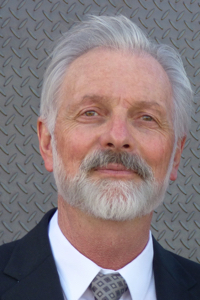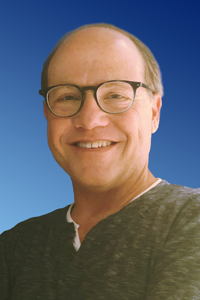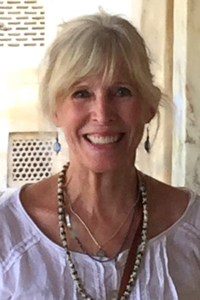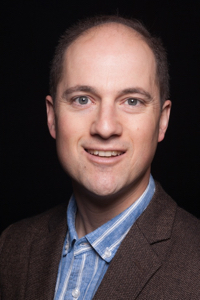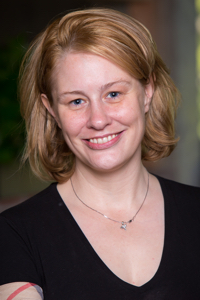Whether it’s entrepreneurship or academia, corporate work or a nonprofit mission, there are as many different tracks for graduate students as there are alumni. And this month, graduates from the five UC Santa Cruz academic divisions who have gone out into the world with their advanced degrees will return to campus to be honored during Alumni Weekend.
The five honorees will be presented with the first Distinguished Graduate Student Alumni Awards at an April 29 luncheon. Following that, they’ll be part of panel discussions where they’ll share their stories on career and entrepreneurship opportunities, resources for graduate students, the development of leadership skills, and life after graduate school. That will be followed by networking and, weather permitting, star gazing.
A full schedule is available on the Alumni Weekend website.
“The career landscape for UC Santa Cruz graduate students is one with many attractive opportunities that impact different sectors of society, as these distinguished alumni show us,” said Sonya Newlyn, administrative assistant for the Division of Graduate Studies. “Their stories are nothing less than inspiring.”
The five graduate alumni honorees and the academic divisions they represent include the following:
Claudio Campagna, Physical and Biological Sciences Division
Campagna is a conservation biologist with the Wildlife Conservation Society and adjunct professor and research associate in the campus’s Department of Ecology and Evolutionary Biology. In addition to earning his Ph.D. in biology from UCSC in 1987, he studied medicine at the University of Buenos Aires, Argentina.
“His distinguished career extends far beyond his important research on marine ecology and marine mammal biology,” said Paul Koch, dean of the division of Physical and Biological Sciences. “He’s had a real impact in conservation and marine protection—recognized by his Pew Fellowship and other awards—and in communication, public outreach, and advocacy.”
Campagna is a field conservationist and animal behaviorist working in coastal Patagonia, Argentina, since the 1980s. He founded the Forum of NGOs and works with the IUCN Species Survival Commission. Recognizing the need to promote conservation using creative communication tools, he’s published widely in scientific journals, written a children’s book, and just finished a novel.
Reflecting on the viability of changing the vision of the conservation movement by applying concepts developed by language philosophers, he started a project with philosophy Professor Daniel Guevara on the Language of Conservation. It bridges biology and ethics and is inscribed in the Center for Public Philosophy at UCSC.
Dan Heller, Arts Division
Heller graduated with his Master of Fine Arts in 2013 from the Digital Arts and New Media program 28 years after he earned his bachelor’s degree in computer science at UC Santa Cruz. Through the years, he’s become an established technology veteran, with a career that’s focused on starting or working with companies to commercialize their inventions.
Arts Dean Susan Solt said of Heller, “He embodies our aspirations, particularly in the areas of creativity and entrepreneurship. We are delighted by his ongoing successes and are happy to have played some part in them.”
His first startup dates back to the 1980s, when he built the first commercially available email system for the internet. He founded the university’s Center for Entrepreneurship in 2010, an academic degree program he created for students who would study and collaborate with professors to advance publicly funded research and bring them to market. Most of the intellectual property was in biotech, computer software, social media, and generalized technology solutions.
In 2011, Heller became co-founder and CEO of Two Pore Guys, a life sciences technology company in Santa Cruz. The startup makes a digital, hand-held medical testing platform using solid-state nanopores.
Betsy Herbert, Social Sciences Division
Herbert is an environmental writer and chair of the Science Advisory Panel of the Sempervirens Fund, the oldest land trust in California. Her column in the Santa Cruz Sentinel is called Earth Matters. She also serves on the boards of the Santa Cruz Mountains Bioregional Council and the Center for Farmworker Families.
She is the former environmental programs director for the San Lorenzo Valley Water District, where she oversaw watershed management, climate change greenhouse gas emissions tracking, and environmental grants. A recipient of a Switzer Leadership Award in 2005, Herbert served as community liaison to the town of Felton, facilitating the public acquisition of its water system from California American Water. The water district successfully completed this public acquisition in 2008.
Environmental Studies Professor Daniel Press, who taught Herbert at UC Santa Cruz, where she earned her Ph.D., described her as a renaissance woman, who has reinvented herself over and over.
“Her evolution as a scholar was inspiring to watch,” he said. “Her research did a wonderful job connecting policy and management to environmental outcomes, specifically water quality and forest health.”
And now? “She offers the world a wonderful mosaic made up of rich narrative and imagery, wise counsel, and true heart.”
Adam Siepel, Baskin School of Engineering
Siepel worked in the bioinformatics field and earned his Ph.D. in computer science from UC Santa Cruz. He is a professor in the Watson School of Biological Sciences and chair of the Simons Center for Quantitative Biology at New York’s Cold Spring Harbor Laboratory.
Originally trained as a computer scientist, he has done influential work in molecular evolution, comparative genomics, human population genetics, and transcriptional regulation. He was a member of the faculty of the department of Biological Statistics and Computational Biology at Cornell University from 2006 to 2014.
“His work brought a new understanding of how DNA changes as a species evolves,” said David Haussler, scientific director of the UCSC Genomics Institute. “That work contributes both to our basic understanding of life and also to our understanding of disease. The Simons Center that he leads is a major contributor to global scientific knowledge.”
Siepel is a winner of a Guggenheim Fellowship, a Microsoft Research Faculty Fellowship, a Packard Fellowship, a National Science Foundation CAREER Award, and a Sloan Research Fellowship.
“With his deeply felt fascination of the world, backed by rigorous engineering know-how, Siepel embodies the spirit of the UCSC Baskin School of Engineering," said Baskin School of Engineering Dean Alexander Wolf.
Emily Sloan-Pace, Humanities Division
Sloan-Pace started out singing and dancing for a living, and now is a professor-in-residence at Zoho Corporation, a cloud computing company based in Chennai, India.
She earned her doctorate at UC Santa Cruz in 2012 and then stayed to teach courses for the Literature Department, and for Cowell and Stevenson colleges. Now her work involves designing and teaching curriculum aimed at helping Zoho’s employees improve their written and spoken communication. In her capacity as chief learning officer, Sloan-Pace regularly travels to India to lead workshops and seminars on topics ranging from customer support to marketing to Shakespeare.
Deanna Shemek, professor and chair of the Department of Literature, described Sloan-Pace as a perfect example of how a Ph.D. in literature can have an impact beyond academia.
“She wrote a fine dissertation on a topic—women in Shakespeare’s English history plays—that is seemingly distant from her current position’s concerns,“ Shemek said. ”The critical thinking and communication skills required for advanced work in the humanities, though, were exactly what her Silicon Valley employer was looking for. Her position at Zoho is something quite new, an illustration of ways that specialized work in literary studies can be highly generalizable and valued outside, as well as inside, academic education.”
